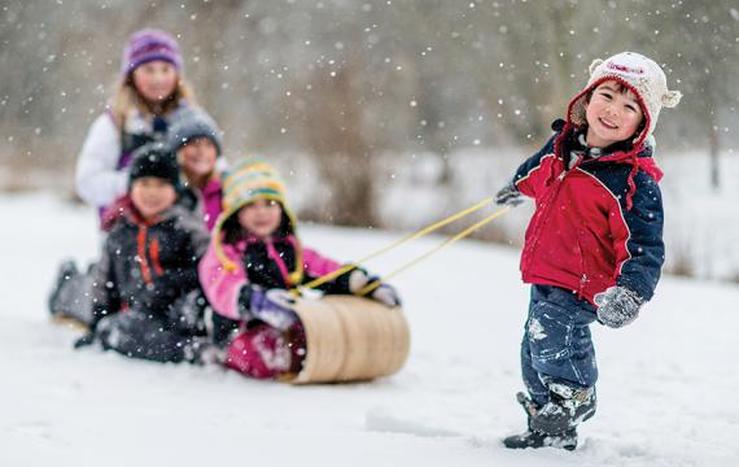
Children’s Skin Needs Extra Protection in Cold Weather
Children don’t have the capacity to control their body temperature the way adults do. Because they are more influenced by ambient temperatures, making sure they are bundled up against winter weather is extremely important, according to Trillium Creek’s Medical Director, Dr. Helen Torok.
“Children lose a lot of their body heat from their heads, so make sure they wear hats when going outdoors,” Dr. Torok says.
Dressing in layers is a good approach. Gloves are important as well as warm, waterproof footwear.
Dr. Torok recommends remembering the acronym CHaP: Cover, Hydrate and Protect. Make sure children are well hydrated by applying moisturizers before and after outdoor exposure.
“When little ones come in from playing outside, make sure you get something warm into them, such as hot chocolate or soup, and keep them warm until their body temperature regulates,” she says.
Children with eczema suffer more in colder weather. Again, covering the skin and moisturizing can form a barrier to reduce discomfort from exposure to cold.
Dr. Torok says she sees a number of teenage girls at her practice during the winter months with frostbitten toes from wearing flip-flops in the winter. Frostbite is a painful but totally preventable condition. Aspirin and warm socks are recommended, as well as keeping the feet very warm with shoes or boots.
Winter Sports Breeding Ground for Infections
Basketball, wrestling, and other body-to-body contact sports are ideal conditions to contract the staph infection known as MRSA. Methicillin- resistant Staphylococcus aureus is considered one of the “superbugs“ – a strain of staph bacteria that’s resistant to broad-spectrum antibiotics usually prescribed to treat it. Several pro athletes in the Akron-Cleveland area have been stricken with it. The infection manifests as painful boils. “Community-acquired” MRSA can be particularly dangerous in children, often entering the body through a cut or scrape. It can cause widespread infection. Children may be more susceptible to MRSA because their immune systems are not fully developed.
“The best way to avoid MRSA is not sharing anything– athletic equipment, bars of soap, towels, razors, lip balm or combs,” Dr. Torok says. “Wrestling mats should be wiped down with alcohol or bleach.”
Sporting activities also cause sweating, which can aggravate acne. A thin line must be walked to moisturize the skin enough, yet not over-moisturize, which can cause an acne flare-up. Changing wet clothes immediately after the activity will diminish acne eruptions on the back and chest.
Athletes’ foot is a fungus that thrives in dark, warm, wet athletic shoes. Athletes should make sure their feet are kept clean and dry, even if it means changing shoes and socks frequently.
A little prevention can go a long way in keeping your children safe and comfortable this winter!

